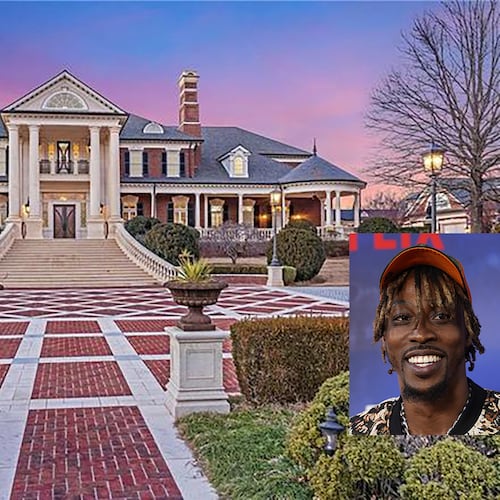When singer-songwriter Loudon Wainwright III turned 65 last fall, he realized that he was older than his father, journalist Loudon Wainwright Jr., ever was. And so, he said in a recent phone interview, "death 'n' decay" became the unlikely theme of his latest album, "Older Than My Old Man Now."
The collection is marked with the kind of rueful wit that's been a trademark since 1972's "Dead Skunk" brought Wainwright III his first measure of fame. Guest stars on the album include his children, Lucy Wainwright Roche, Martha Wainwright and Rufus Wainwright, and some old friends like Ramblin' Jack Elliott and Chris Smither.
But Wainwright will be going solo for an Aug. 25 show at Atlanta's Variety Playhouse. "I'll just be showing up there with my guitar and a clean shirt and jumping up and down and singing songs," he said.
Here's more of the interview. ...
Q: "Older Than My Old Man Now" seems like it could have been conceived as a musical or song cycle, and yet the songs come from different periods, right?
A: Basically, the way it goes is that every couple of years you gather the songs that you have and you think, is there a record here. I realized that there was, and the topic was death and decay. The trick was to somehow make it engaging, and not a bummer.
Q: You certainly went all out with guest singers, including the family. Was that part of the strategy?
A: As I think I say in the liner notes, one guy going on and on about death and decay could bring you down, so we got other people to lighten the load. We wanted to make it musical, so we got good singers and musicians.
Q: In May you got together with a bunch of the family to showcase the album at Town Hall in New York City ...
A: We did. We had Rufus and Martha and my daughter Lucy and Suzzy Roche and a lot of people who played on the album. We did the album from beginning to end, in sequence, which was kind of fun, and we had slides of some of the people mentioned in the songs.
Q: Did that experience give you another perspective on the material?
A: I think it did. One of the most important contributors for me on this record is my father and what we call the recitations — these excerpts from these columns that he wrote for Life magazine. It had a kind of sonic theatrical quality, which we wanted the album to have.
Q: The title track has a passage written by your father about his father, who died before you were born. What did you know about your grandfather?
A: He's kind of a mysterious figure, in my mind anyway. I can remember my father talking about the ghost of his father. The specific selection is from a column he wrote called "Life With and Without Father." He was a very good writer. In my show now I'm doing an entire column that's connected with a new song.
Q: "The Days That We Die" is about as honest as you can lay out family dysfunction.
A: Like most families, there's been some struggles between parents and children. Rufus and Martha and I have had our go-rounds, and they've been publicly expressed in various ways by all of us. This is yet another song I wrote about that. When I went back and read this column by my dad called "The Ghosts of Christmases Past" I said, "Wow. This is the same deal. The same problem with your adult kids."
Q: Having Rufus sing part of the song seems to put an exclamation point on that.
A: It was a very logical choice to send an MP3 to Rufus and say, "Hey, do you want to sing this with me?" He wrote right back and said, "Yeah." Somehow in my mind I imagined we'd do that usual thing you do when you sing with somebody on a record. Maybe each take a verse and then sing the chorus together. But his idea was to keep everything separate. So you'll notice, we never sing together on the song [laughs].
Q: For a collection about death and decay, there's a lot of jaunty good humor, too ...
A: Wait. When I say death and decay, it's death and then the letter n with an apostrophe, so it's like death 'n' decay. Hopefully that connotes some fun. It's like Good 'n' Plenty candy. But I've always been a purveyor of novelty songs. I like to think that I can make my audience laugh. Songs like "My Meds" and "I Remember Sex" are good examples of that.
Q: "Something's Out to Get Me" closes out the album with a pretty heavy sentiment. You sing, "that something out to get me is out to get you, too." But then there's a kind of whistling past the graveyard instrumental ditty at the very end. Is that your personal summation of death?
A: Dick Connette, who produced the record, felt that to just finish it off with "out to get you, too" would be too bleak. The coda has that jaunty, happy, whistling down the road feeling [laughs]. The idea that it's out to get us all sounds bleak. But it's also reassuring. I take comfort in that. Not only are we all in the same boat, it's just the natural order of things.
Loudon Wainwright III, 8:30 p.m. Aug. 25. $25-$27.50. Variety Playhouse, 1099 Euclid Avenue N.E., Atlanta. 404-524-7354, www.variety-playhouse.com.
About the Author
The Latest
Featured

